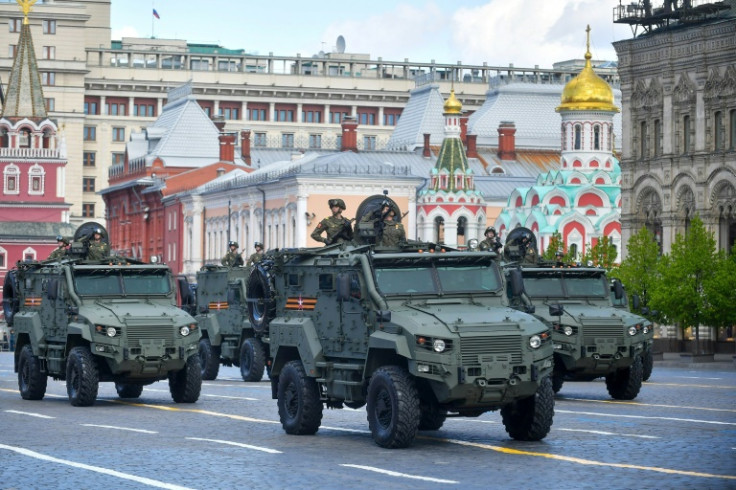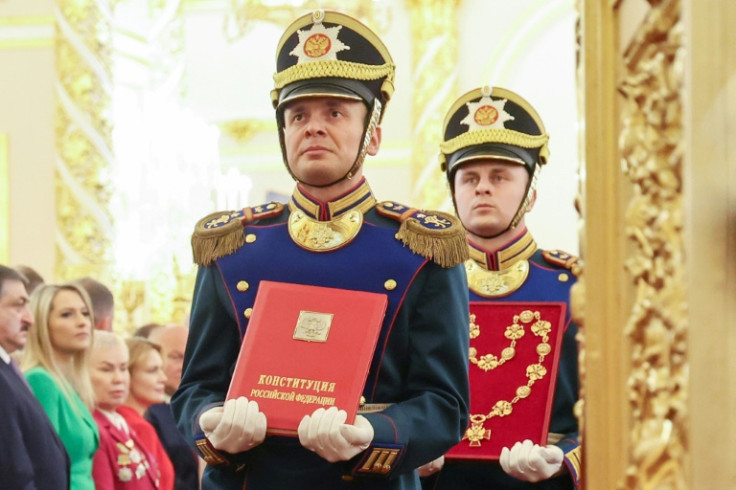
President Vladimir Putin vowed at a lavish inauguration on Tuesday to deliver victory to Russians, embarking on a record-breaking fifth term with more power than ever.
Putin, however, conceded that Russia was going through a "difficult" period, an apparent reference to the unprecedented sanctions packages the West has imposed on Moscow for having launched full-scale military hostilities in Ukraine more than two years ago.
The 71-year-old Kremlin chief has ruled Russia since the turn of the century, securing a fresh six-year mandate in March after winning presidential elections devoid of all opposition.
The highly-orchestrated inauguration ceremony, which included a military procession and Orthodox prayer service, was broadcast live on major Russian television channels.
European countries including Poland, Germany and the Czech Republic signalled they would not send representatives amid soured tensions over the conflict in Ukraine.
"We are a united and great nation, and together we will overcome all obstacles, realise everything we have planned, and together, we will win," the Russian leader said after being sworn in to office.
Putin, who has said that his forces will be victorious in Ukraine, whatever the cost, said the country would emerge "with dignity and become even stronger".
After standing alone in the rain and overseeing columns of armed guards and calvary parade in ceremonial uniform, Putin was blessed by the leader of the Orthodox Chuch, Patriarch Kirill.
"May God help you continue carrying out your servitude that he himself has entrusted on you," the Orthodox leader said. He compared Putin to medieval ruler Alexander Nevsky and wished him eternal rule.
"Serving Russia is a huge honour, responsibility and sacred duty," Putin had said in the Kremlin's gilded Saint Andrew's Hall.
He was greeted by applause by Russian officials and military top brass, who sang the national anthem and applauded him.
Government officials and foreign diplomats in Moscow were invited to the ceremony, including French ambassador Pierre Levy.
Putin's 87 percent landslide victory in the presidential election was panned by most international observers and dismissed as rigged by opposition and rights groups.
The inauguration comes two days before Russia marks Victory Day on May 9, an event that has taken on renewed symbolism as Putin compares his offensive in Ukraine to Russia's fight against Nazi Germany in World War II.
Authorities erected barriers throughout Moscow's city centre ahead of both events.
Putin kicks off his six-year term emboldened by advances on the battlefield in Ukraine and sustained economic growth, despite a barrage of Western sanctions.
On the domestic front, he saw off a rebellion last June from paramilitary chief Yevgeny Prigozhin -- who later died in a plane crash -- and in February his main political rival Alexei Navalny died in prison.
In a video minutes before the inauguration, Navalny's widow Yulia Navalnaya described Putin as deceitful and said Russia was doomed to remain in a state of conflict so long as he remains in power.
His victory in March means that he is likely to become the longest-serving ruler of Russia in a century, beating out Soviet dictator Joseph Stalin.
Russia's army held off a much-hyped Ukrainian counter-offensive last year, and it has since made gains on the front lines as Kyiv struggles with ammunition and manpower shortages.
But as the conflict stretches into a third year without an obvious resolution and the economy teeters towards overheating, Putin faces significant challenges in his fifth term.
Inflation -- a historic source of angst amongst the Russian population -- remains persistent as Moscow adopts what analysts have called a "military Keynesianism", pouring billions of resources into the war effort.
The Kremlin has also failed to quell fears it will announce a new round of unpopular mobilisation in Putin's new term, and discontent among the wives of men who have been drafted continues to simmer.
Some analysts have suggested Putin may use the inauguration to shake up his government, which is obligated to resign ahead of a new presidential term.









